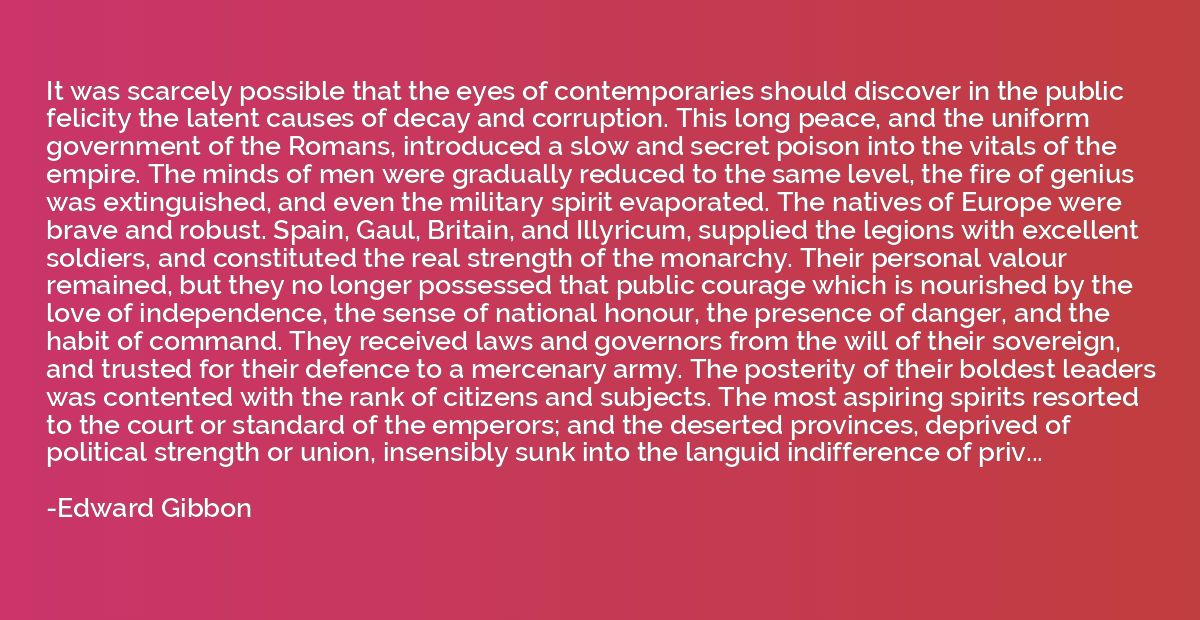Quote by Edward Gibbon
It was scarcely possible that the eyes of contemporaries should discover in the public felicity the latent causes of decay and corruption. This long peace, and the uniform government of the Romans, introduced a slow and secret poison into the vitals of the empire. The minds of men were gradually reduced to the same level, the fire of genius was extinguished, and even the military spirit evaporated. The natives of Europe were brave and robust. Spain, Gaul, Britain, and Illyricum, supplied the legions with excellent soldiers, and constituted the real strength of the monarchy. Their personal valour remained, but they no longer possessed that public courage which is nourished by the love of independence, the sense of national honour, the presence of danger, and the habit of command. They received laws and governors from the will of their sovereign, and trusted for their defence to a mercenary army. The posterity of their boldest leaders was contented with the rank of citizens and subjects. The most aspiring spirits resorted to the court or standard of the emperors; and the deserted provinces, deprived of political strength or union, insensibly sunk into the languid indifference of private life.

Summary
This quote highlights the gradual decline and corruption of the Roman Empire. It suggests that the period of peace and centralized Roman government had negative consequences. The unity and stability brought about by these conditions caused a decline in individuality and creativity among the people, as well as a loss of military spirit. The quote emphasizes the loss of public courage and the growing reliance on a mercenary army, with the role of citizens reduced to that of subjects. Ultimately, it suggests that the lack of political strength and unity in the provinces resulted in the apathy and indifference of ordinary lives.














